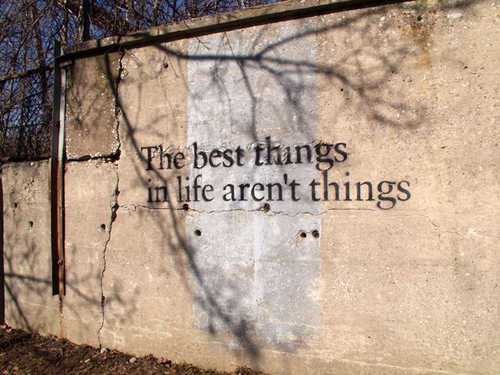The power of no reward
2009-07-10Are you paying an affiliate fee to your customers to recommend their friends?
Think again. It may backfire.
Compare these two scenarios:
- “Hey you should check out this website. They’re cool. You’ll like it.”
- “Hey you should check out this website. They’re cool. You’ll like it. If you sign up, make sure to mention my affiliate code 43625.”
The first one sounds sincere. I’ll check it out.
But the second one sounds suspicious. Does my friend really think I’ll like it, or is he only telling me to profit? Now I don’t trust the recommendation anymore.
Compare these two scenarios:
- “Excuse me, neighbor. Can you please help me lift this desk through that door? It’s stuck.”
- “Excuse me, neighbor. Can you please help me lift this desk through that door? I’ll pay you a dollar.”
The first one is fine. We all like to think of ourselves as helpful. And we enjoy a challenge.
But the second one is insulting. A dollar? I’m your neighbor! You don’t need to pay me. But the amount you offered is even more insulting than nothing. I’m going to say no. If my neighbor is looking to hire someone for a dollar, he can hire someone else.
The great book “Predictably Irrational” says social psychology tests have shown we have two different sets of rules: social mindset and market mindset.
Social mindset is warm and fuzzy social human nature: helping friends, being a good generous person, doing what’s right.
Market mindset is strictly business: being paid for time and effort, competition, you get what you pay for, and cost/benefit analysis.
Introducing money into a social relationship switches it to market mindset, changing the entire relationship, making all the warm-and-fuzzy go away.
Here’s an example of what not to do:
A day care center had a problem with parents picking up the kids late. The teachers were often waiting an extra hour with the kids for tardy parents to show up.
So they added a fine. $3 each time you are late to pick up your kids.
So now that parents were paying for their tardiness, they used market mindset to decide whether $3 was worth it to be late, and tardiness actually increased!
Social mindset had been replaced with market mindset. What was a decision of social guilt (“I feel bad. I’m late.”) was now a cost/benefit analysis (“I’ll work a little longer, and pay the $3.”)
Realizing their mistake, the day care removed the fine a few weeks later, tardiness increased again, now that social mindset and market mindset had both been removed.
Poor day care center. Don’t be like them.
In over 20 published studies, people who expect to receive a reward do not perform as well as those who expect nothing.
Don’t underestimate the power of no reward. Don’t introduce market mindset for social things.
Next time you’re thinking of rewarding your friends or customers with cash, think how offensive it would be to offer to pay for sex.
